Tairi's Journey of Resilience and Renewal through Farming and Faith
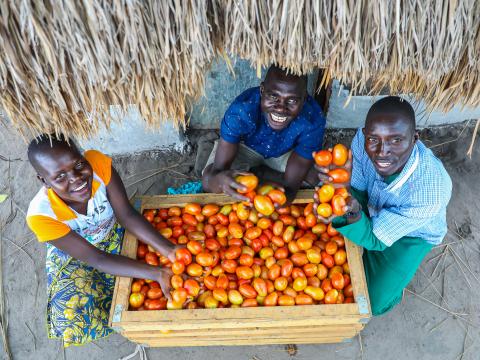
At just 24, Tairi had mapped out his future. He dreamed of becoming an automotive engineer, a goal that seemed well within reach, thanks to his brilliance in mathematics and the modest support of his farming parents. But that dream stalled in 2023, when the changing climate stole more than just rain; it took away his education, his security, and nearly, his hope.
“I grew up in a household where the rains determined everything,” Tairi recalls. “When the seasons were good, our harvests were plenty. We had food, school fees, clothes, and life was okay.” His family, like many in Yumbe District, depended entirely on subsistence farming. Crops like maize, beans, and groundnuts paid for their children’s education. But then the rains changed.
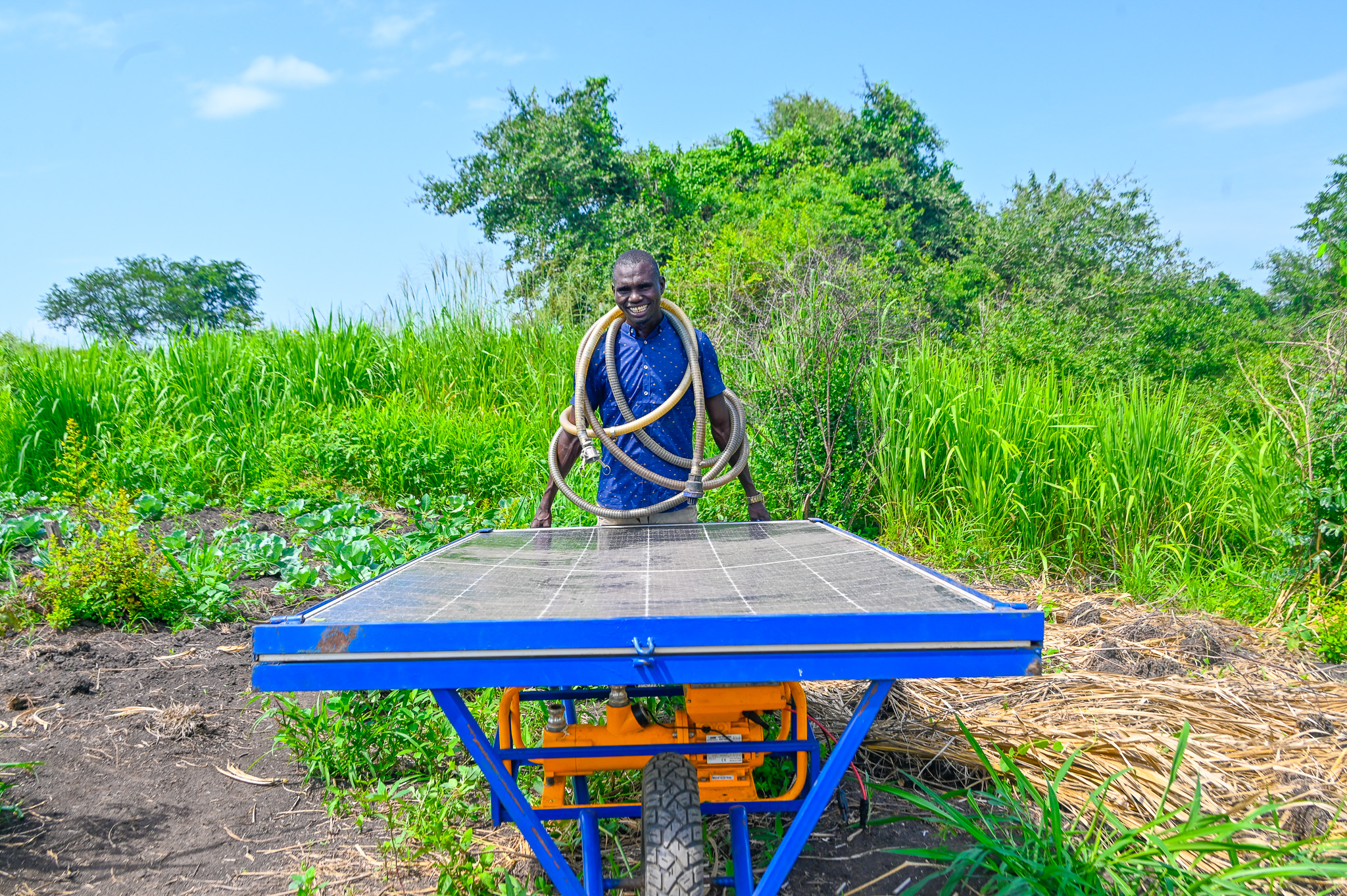
In recent years, Yumbe has become a frontline of Uganda’s growing climate crisis. Once, predictable seasonal rains have become erratic. Prolonged droughts, sometimes lasting for months, now decimate crops before they can mature. With climate variability increasing, smallholder families who form the backbone of rural Uganda are being pushed into deeper poverty.
For Tairi’s family, one failed season turned into several. “The droughts became longer, and the harvests kept shrinking. My parents couldn’t keep up. They just looked at me one day and said they couldn’t afford my school anymore,” he says, his voice heavy with memory. Forced to drop out of school, Tairi watched his future fade.
With no job and few prospects, he followed the path many desperate youth take. He married young, hoping to build a new kind of future. But instead, hardship deepened. “We often went to bed hungry,” his wife Serifa shares. “There were days I had to beg from neighbors, but everyone was struggling.”
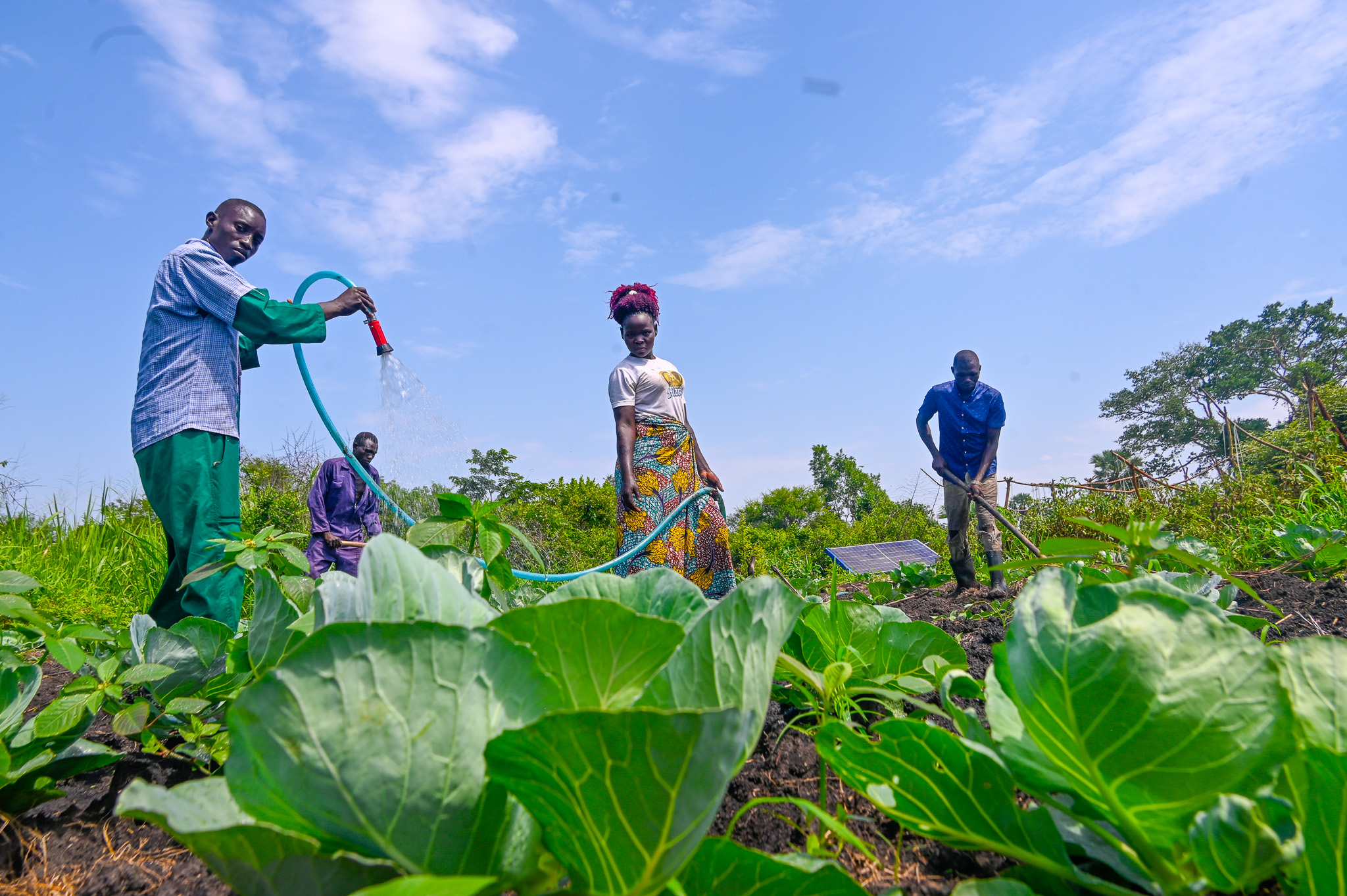
A Turning Point
In early 2024, a lifeline came in the form of World Vision’s Faith and Community Transformation (FACT) project, an initiative designed to restore dignity, purpose, and livelihoods to families facing crisis. The project targeted both refugee and host communities in Bidibidi, Yumbe District, working through over 40 farmer groups with a strong emphasis on faith, mindset shift, and climate-smart agriculture.
“When I heard about World Vision coming to our community, something in me stirred,” Tairi says. “I felt like maybe, just maybe, this was a second chance.”
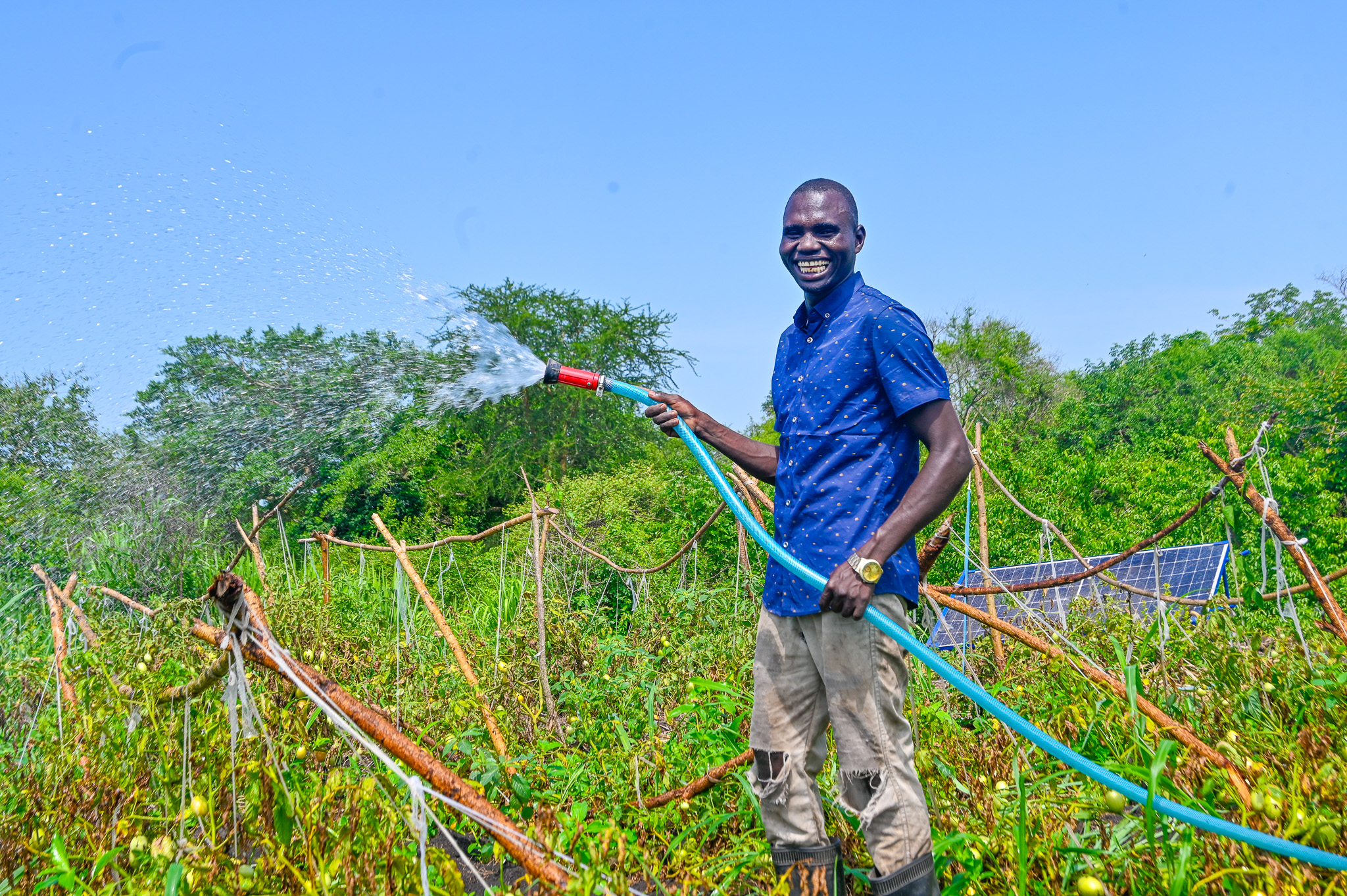
He joined hands with friends to form the Kula Tano Farmers Group, a 30-member collective eager to learn. Tairi’s energy and leadership soon earned him the role of Trainer of Trainers (ToT) — a position that allowed him not only to gain knowledge but to spread it across his community.
At the heart of the FACT project was the Biblical Empowered Worldview training, a faith-based approach that encourages participants to reimagine their value, capacity, and purpose. “It changed how I saw myself,” Tairi explains. “I stopped blaming the government, the weather, or my past. I realized I had the power to change things.”
Armed with training in Climate-Smart Agriculture and Enterprise Development, Tairi shifted his focus to agribusiness. Leveraging a stream that cut across his land, he chose to grow tomatoes — a crop well-suited to irrigation and high demand. With support from World Vision, he received a startup kit: quality seeds, pesticides, and a solar-powered irrigation system.
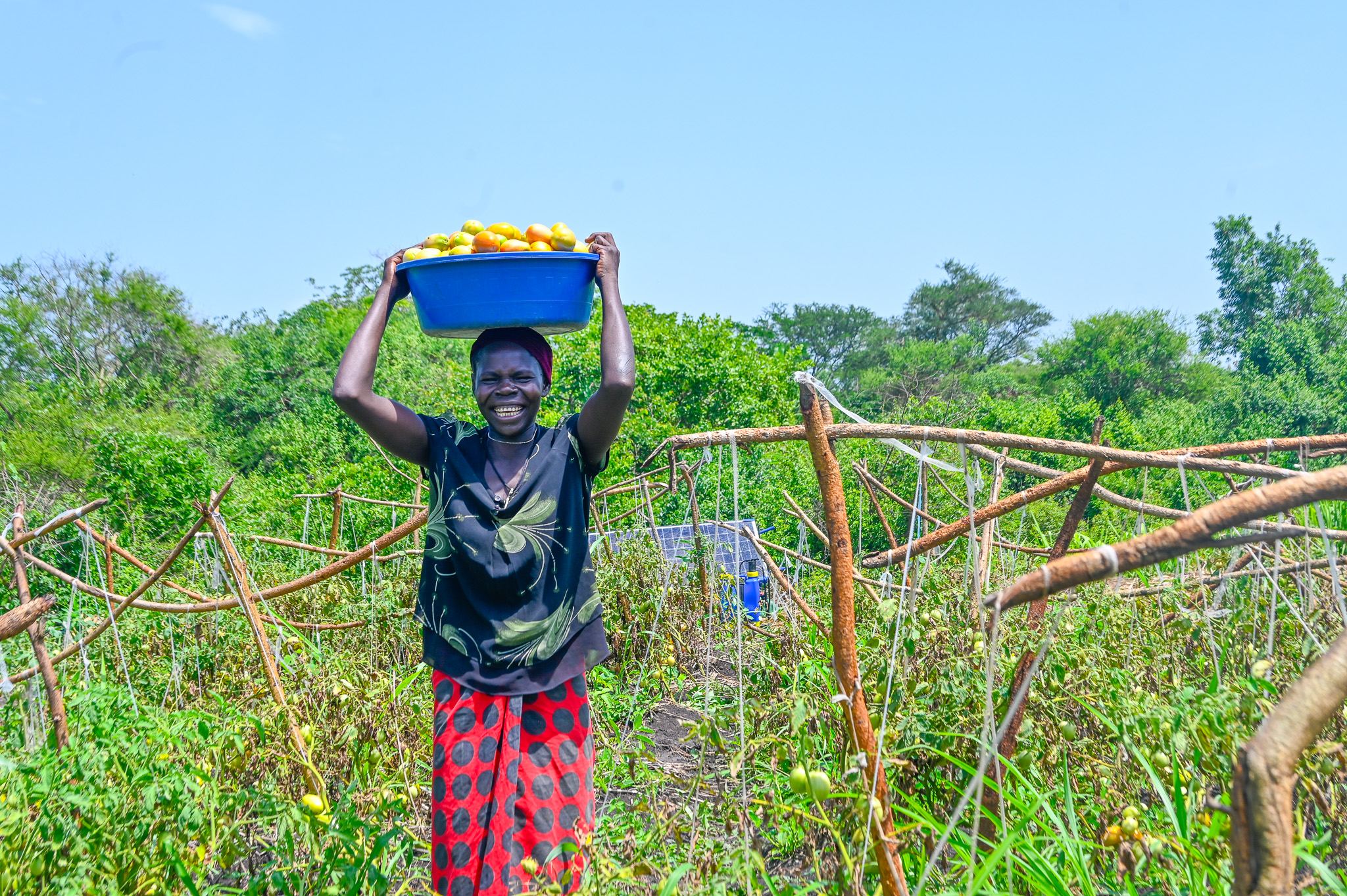
His first harvest, even amid a dry spell, brought in UGX 800,000 (approx. USD 230) more than his family had earned in an entire season before. He used the money to support his family, reinvest in his farm, and, most significantly, return to school.
Today, Tairi is once again pursuing his dream of becoming an engineer. But he does so with newfound wisdom: he continues to grow his farm and mentors fellow youth on climate resilience, entrepreneurship, and the power of mindset change.
Tairi’s journey is more than a personal comeback; it’s a story of adaptation and transformation in the face of climate adversity. In regions like Yumbe, where young people are increasingly vulnerable to climate shocks, Tairi stands as a symbol of what’s possible when faith, community, and innovation come together.
“Thanks to the FACT project,” he says, “I no longer see climate change as the end of the road — it’s just a new chapter. And this time, I’m writing the story myself.”
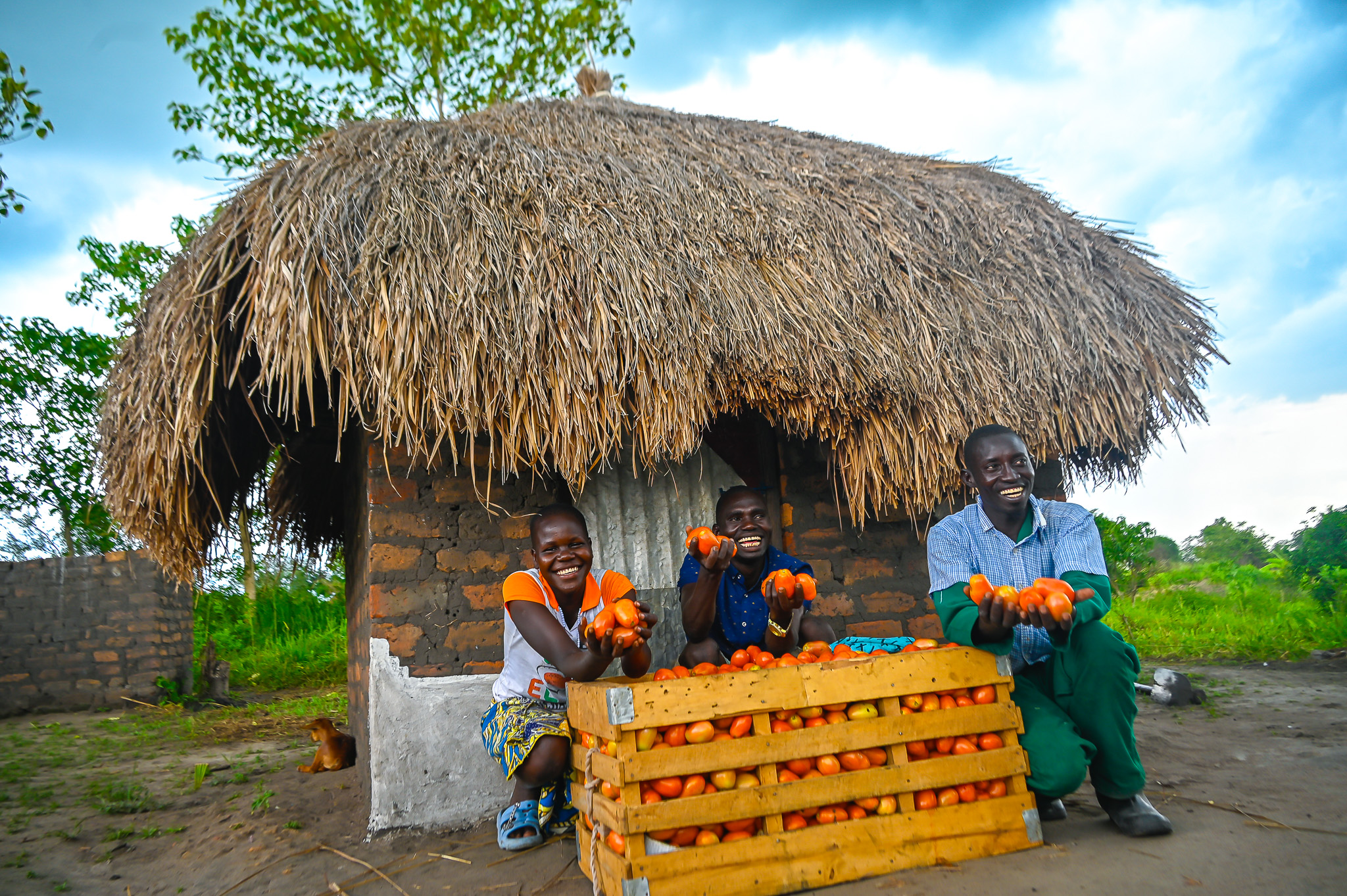
Story by: Mungu Jakisa Brian- Communications Officer, World Vision